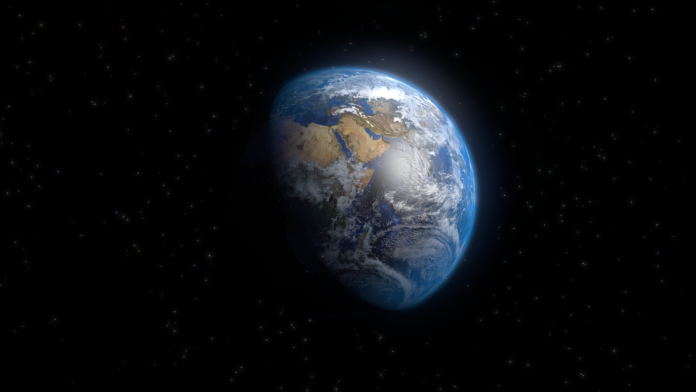
Humans are “eating away at our own life support systems” at a rate unseen in the past 10,000 years, damaging the environment so gravely that the Earth will cease to be a “safe operating space” for our species, warns a new report in the journal Science.
“What the science has shown is that human activities – economic growth, technology, consumption – are destabilizing the global environment,” said the report’s lead author, Dr. Will Steffen, of the Stockholm Resilience Center and Australian National University in Canberra.
The dire findings come on the heels of two other recent reports demonstrating the destructive impact of unsustainable human activity on planet Earth. On Thursday, dual reports by NASA and the National Oceanic and Atmospheric Association confirmed that 2014 was officially the hottest year in recorded history and the 38th year in a row of above-average temperatures. Also this week, a study published in the journal Science warned that marine wildlife at all levels of the food chain has been badly damaged by human activity, pushing ocean life to the brink of a mass extinction event.
Four of nine planetary boundaries crossed
The new paper, authored by an international team of 18 scientists, concludes that four of nine “planetary boundaries” have been
- Climate change
- The extinction rate and accompanying loss of biological diversity
- Deforestation and other changes in the land system
- Alteration of the natural global nitrogen and phosphorus cycles by agriculture and industrial processes, which is threatening aquatic life and causing massive algae blooms in lakes and oceans.
In a video on the Washington Post website, Stockholm Resilience Center executive director Johan Rockström explained that these are “critical biophysical boundaries that we need to stay within to avoid unacceptable environmental change, with serious, potentially disastrous consequences for society.”

According to the new report, four of nine planetary boundaries have been crossed: climate change, loss of biosphere integrity, land-system change, altered biogeochemical cycles (phosphorus and nitrogen).
Of the crossed boundaries, the scientists say that climate change and loss of biological diversity — also called “biosphere integrity” — are the two most critical.
The remaining boundaries that humans haven’t yet crossed include:
- Stratospheric ozone depletion
- Chemical pollution
- Ocean acidification
- Freshwater consumption and the hydrological cycle
- Human emission of atmospheric aerosols, which are tiny dust particles that affect the climate.
Human activity is making Earth less hospitable to human life
The researchers spent five years identifying these core components of a planet suitable for human life, using the long-term average state of each measure to provide a baseline for the analysis. They found that the changes of the last 60 years are unprecedented in the previous 10,000 years, a period in which the world has had a relatively stable climate and human civilization has advanced significantly.
Carbon dioxide levels, at 395.5 parts per million, are at historic highs, while loss of biosphere integrity is resulting in species becoming extinct at a rate more than 100 times faster than the previous norm. Since 1950, urban populations have increased sevenfold and primary energy use has soared by a factor of five, while annual fertilizer use is now eight times higher. Additionally, the amount of nitrogen entering the oceans has quadrupled.
All of these changes are shifting Earth into a “new state” that is becoming less hospitable to human life, the researchers warned.
While the projections are certainly dire, the authors were careful to emphasize the other side of their findings, saying they present a timely opportunity to take action before it’s too late.
“The world has a tremendous opportunity this year to address global risks, and do it more equitably,” said Dr. Rockström. “In September, nations will agree the UN’s Sustainable Development Goals. With the right ambition, this could create the conditions for long-term human prosperity within planetary boundaries.”
